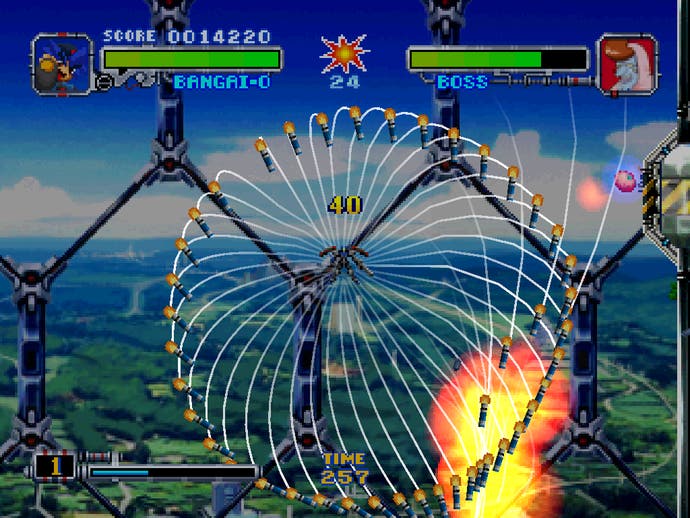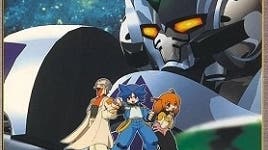The Double-A Team: Bangai-O turns bullet hell on its head
Missile demand.
Bullet-time was a defining gimmick that marked the end of one millennium and the beginning of the next. 1999's summer blockbuster The Matrix blew our minds with bullet dodging before games popularised it starting with Max Payne in 2001, which coined its feature with that exact term. But in between these two pop culture titans, spare a thought for Bangai-O, the little big Japanese title that took its own unique approach.
That isn't to say that Treasure's shmup has an actual bullet-time mechanic, rather it's the result of pushing the host hardware, first on N64 followed by an international release on Dreamcast, to the max. You play as hot-blooded Riki and his quiet sister Mami, together pilots of the titular mech Bangai-O, which looks more diminutive on screen than you'd expect for a mech. Swapping pilots takes just a press of the L trigger, with Riki firing off homing missiles while Mami's straight-shooting lasers reflect off surfaces.
Gunning down hordes of enemies and collecting tons of fruit, each of the 44 free-scrolling levels is fairly short and self-contained, making Bangai-O immediately more accessible than the arcade-oriented bullet-hell shooters that punt you back to the start once you're out of lives. It also subverts how you're meant to navigate bullet-hell, which usually requires entering a magical flow of dodging everything coming your way. If anything, it encourages you to steer suicidally close to incoming threats.

This is how you make the most of Bangai-O's killer party trick, the scatterbomb. Firing out missiles or lasers from all directions is an impressive sight, letting you clear out small areas with ease. But it really comes into its own when you let enemy projectiles come close. Wait until the last moment before you squeeze the R trigger and the volley you fire back cranks right up. On N64 this could mean up to 100 missiles, but the Dreamcast version takes this up to an eye-watering 400. With all those beautiful explosions tearing across the screen, it's a surprise the hardware can even handle it.
Yet that's what compels you to play Bangai-O dangerously. Where chugging framerates would usually have a negative impact the thrill of a twitch-based shooter - or any game for that matter, there's a certain glee here in reaching the point where you have a moment to bask in the shock and awe of your firepower. If that sounds ridiculously unbalanced against your foes, then get this - some bosses can also scatterbomb you, kicking off an intense rally like a duel between New Year's fireworks, all while your console's CPU weeps trying to keep up.
It's an accidental kind of bullet time then, not something you can exploit freely on a whim as we're accustomed to in other games, nor would I compare it to games like Vanquish or Doom Eternal where time briefly slows down when you're close to death's door. Nonetheless, it's when your back is up against the wall that Bangai-O unleashes its potential, fighting fire with fire.

